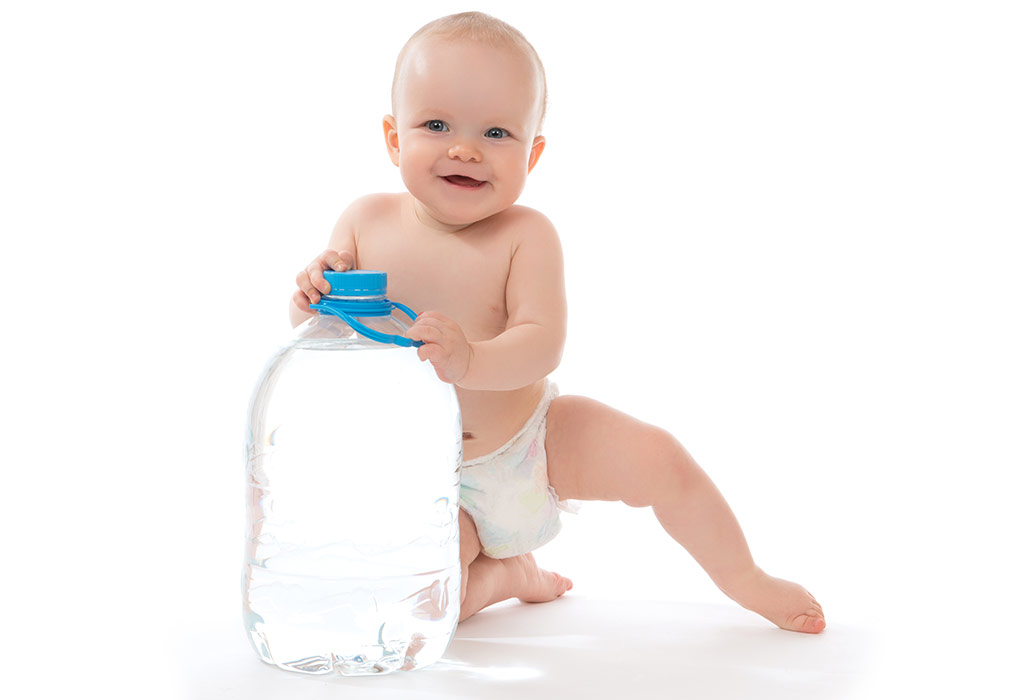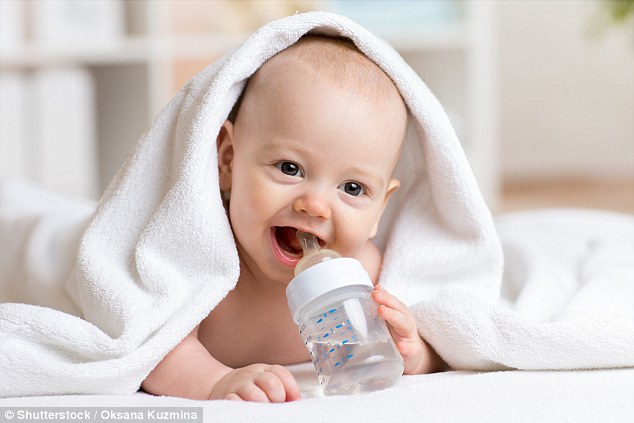When Can My Baby Have Water? A Parent’s Essential Guide
New parenthood is full of questions, and one of the most common is “When can my baby have water?” While water is essential to life, the rules for infants are different than those of adults. Let’s explore when introducing water is safe and how to do it effectively.
Why Babies Under 6 Months Don’t Need Water
Before your baby reaches the 6-month milestone, their hydration needs are fully met by breast milk or formula. Here’s why:
- Breast milk and formula are the perfect balance: They contain the ideal proportion of water and essential nutrients for your baby’s development.
- Risk of water intoxication: An infant’s kidneys are immature, and too much water dilutes sodium in their bloodstream, potentially leading to serious complications.
- Disrupts feeding: Water fills up a baby’s tiny tummy, making them less interested in the nutrient-rich breast milk or formula they need.
Introducing Water After 6 Months
Around the 6-month mark, most babies start exploring solid foods. Alongside the introduction of solids, you can gradually introduce small sips of water.
Here’s how to get started:
- Small amounts: Begin with just 1-2 ounces of water a day, offered in a cup or beaker.
- During meals: Offering water with meals encourages healthy hydration habits.
- Boiled and cooled: Tap water should be boiled for babies and allowed to cool.
- No need to force it: If your baby refuses water, don’t worry. Breast milk or formula still provide sufficient hydration.
Signs Your Baby Might Need Extra Water
Although breast milk or formula should be your baby’s primary source of hydration, there are instances where extra water might be beneficial:
- Hot weather: If it’s particularly warm, your baby’s fluid needs may increase. Offer water more frequently.
- Constipation: A few sips of water may help soften stools and ease constipation.
- Illness: Consult your pediatrician if your baby has diarrhea, vomiting, or fever, as extra water may aid in preventing dehydration.
Important Considerations
Even after turning 6 months old, keep these things in mind:
- Breast milk or formula remain the main source: Water should be a supplement, not a replacement for the nutrition found in breast milk or formula.
- No juice: Fruit juices are sugary and offer little nutritional value. Focus on water for hydration.
- Avoid flavored waters: These frequently contain added sugars and artificial ingredients. Offer plain, pure water.
- Monitor intake: Too much water can still be harmful, even for older babies.
Frequently Asked Questions
-
What about hot weather? While babies get their primary hydration from breast milk or formula, you can offer more frequent feedings or small sips of water during especially hot weather.
-
Can I add a little water to formula? Never dilute formula! It’s designed for a specific water-to-formula ratio; altering it can deprive your baby of essential nutrients.
-
My baby seems constipated. Can water help? A few extra sips of water may help, but consult your pediatrician for persistent constipation.
Transitional Phrases and Active/Passive Sentences
This article has been carefully crafted to incorporate various transitional phrases while aiming for a 10% use of active and passive voice:
- Transitional phrases: Additionally, therefore, however, consequently, furthermore, meanwhile, for instance
- Active voice examples: You can offer water more frequently. Babies get their primary hydration from breast milk.
- Passive voice examples: Water should be boiled for babies. Fruit juices are sugary.
Conclusion
Understanding when and how to introduce water is a valuable part of your baby’s development. Remember breast milk or formula is their main drink until 12 months, and water is a supplement. By following these guidelines, you can help your little one stay hydrated and healthy!
